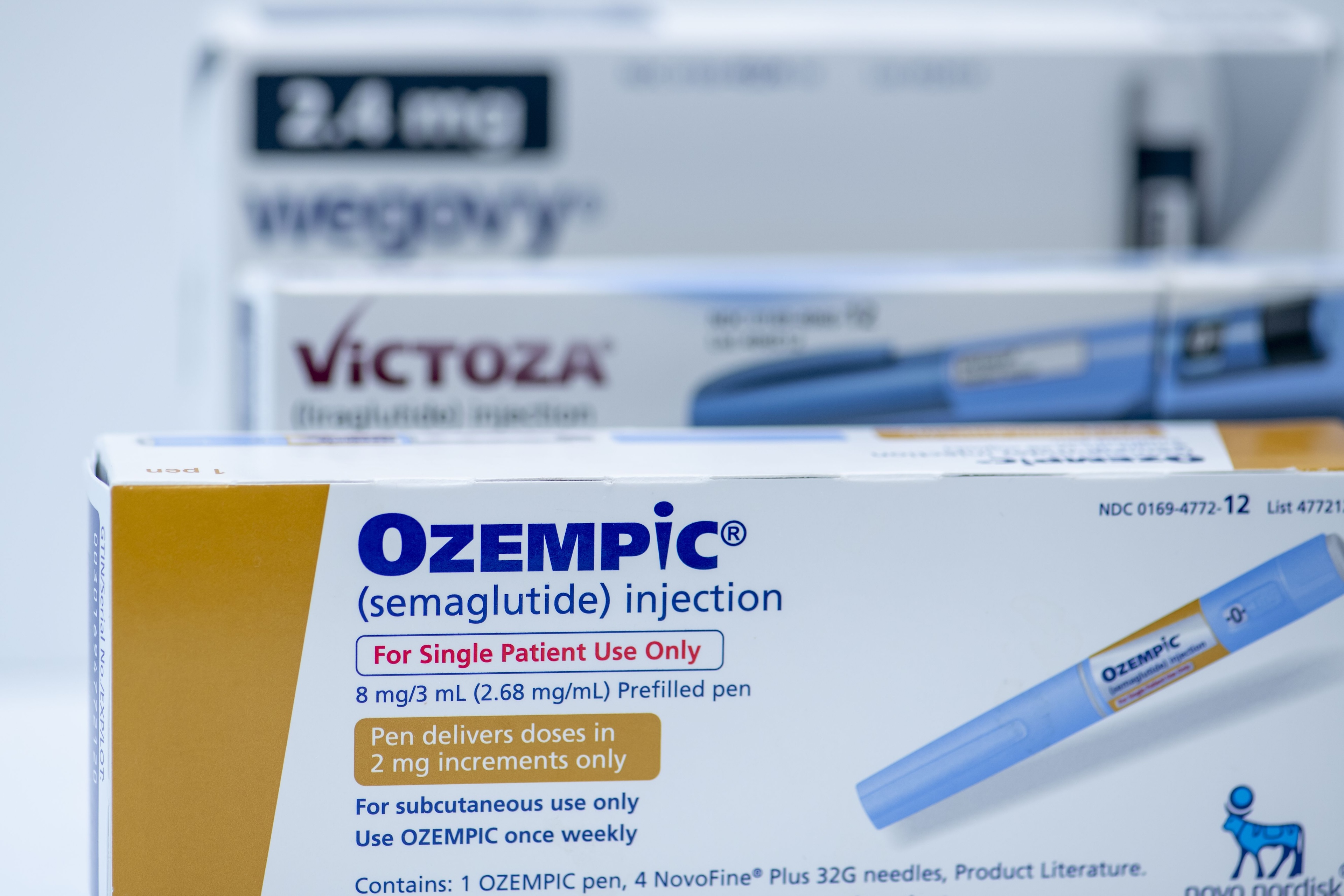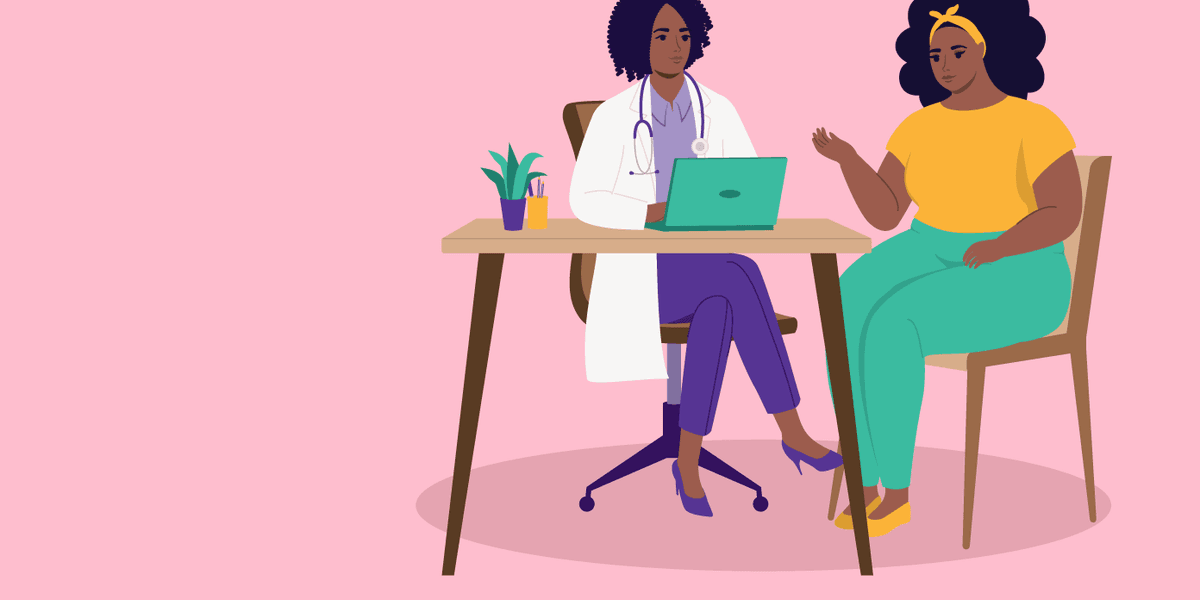If you’re familiar with all the cool stuff vitamin B12 does for the body, you know it gets an A for effort. The nutrient helps with important things like nerve function and the production of DNA and it also plays a part in brain health. “If a person has a lack of B12, they may have trouble concentrating, retaining information and engaging in conversation,” said nutrition therapist Robyn L. Goldberg, RDN, CEDS-C. “It parallels malnutrition. If you’re not taking in enough food, it’s harder for your brain to work.”
Most people get enough vitamin B12 through food, but your age and what you eat can cause vitamin B12 deficiency, which can lead to serious health problems, including nerve damage.
We asked Goldberg for more about the basics behind B12 and what you need to know before taking a supplement.
What is vitamin B12 good for?
Vitamin B12 is a water-soluble nutrient that helps keep your blood and nerve cells healthy and helps your body make DNA. It supports brain function and prevents anemia which can make you feel tired and weak. “It also converts the food we take in into energy,” Goldberg said.
How do you get vitamin B12?
For many people, vitamin B12 is absorbed through food. It can also be taken as an oral supplement or as a prescription nasal spray or injection/infusion for people who have vitamin B12 deficiency.
Does B12 give you energy?
You’ve probably seen B12 marketed as an energy booster, but there’s no real science behind that claim. Goldberg said people with a vitamin B12 deficiency may feel a boost following a prescription shot or infusion, however, people taking the oral OTC supplement won’t see the same effect. “When you’re in the pharmacy and seeing B12 for energy, that’s what I call expensive urine,” Goldman said. What she means is that, since B12 is water-soluble, you pee out any extra that isn’t absorbed in your body.
How much vitamin B12 should I take?
The recommended daily allowance for women and people assigned female at birth is 2.4 micrograms (mcg) of vitamin B12 a day. For reference, that’s about 3 ounces of tuna. People who are pregnant or breastfeeding need a little more, 2.6 mcg and 2.8 mcg a day, respectively.
What foods have vitamin B12?
Vitamin B12 is found in animal products, including meat. Some fortified foods such as breakfast cereals and nutritional yeasts have added vitamin B12.
You can also get B12 from eating:
- Fish
- Clams
- Oysters
- Poultry
- Eggs
- Dairy products
What are the symptoms of vitamin B12 deficiency?
The classic symptom of B12 deficiency is feeling tired or weak. Other symptoms can include:
- Pale skin
- Loss of appetite
- Weight loss
- Heart palpitations
- Numbness or tingling in the hands
- Problems with balance
- A sore mouth or tongue
- Poor memory
- Depression
“The tried and true way to see [if you’re deficient] is to get your blood levels checked,” Goldberg said.
What are the dangers of vitamin B12 deficiency?
Over time, vitamin B12 deficiency can damage your nervous system, among other health problems. “Vitamin B12 is key in keeping our blood healthy. If your blood isn’t healthy, other medical conditions can evolve as a byproduct,” Goldberg said.
If left untreated, B12 deficiency can lead to anemia, mood disorders, muscle weakness, and balance and coordination problems.
Who should consider taking a vitamin B12 supplement?
As we age, the odds of having a vitamin B12 deficiency go up because we have less hydrochloric acid in our stomach to absorb the vitamin from the food we eat. As many as 4 in 10 older adults need to take a supplement or eat foods fortified with vitamin B12.
You may also need a vitamin B12 supplement if you are:
- Over the age of 50
- Vegan
- Vegetarian
- Pregnant
- Breast feeding
- Living with Crohn’s disease and celiac disease
As always, talk to your healthcare provider before taking any supplement. Some people with certain conditions, such as pernicious anemia or autoimmune disease, have trouble absorbing vitamin B12 from food or supplements and may need injections or infusions.
Can you take too much B12?
Even though B12 is a water-soluble vitamin and it’s not stored in the liver like other vitamins, taking too much can have side effects. “Tingling is a big one to be aware of, and I don't think a lot of people are mindful of that,” Goldberg said. “You could have a headache, you could feel nauseated, which could then translate into vomiting, diarrhea or loose stools and feeling weak. And the bigger issue with all of this long-term is it increases the risk for bone fractures and weak bones.”
So, should you take a vitamin B12 supplement?
Goldberg said to get a blood test first to check your levels and talk to your healthcare provider if you’re B12 is low. “Don’t just take a supplement,” she said. “Supplements don’t always have what they claim, and they may have more than what they’re stating — so it’s a gamble. We never truly know if it has what it’s saying.”













![Healthy Peanut Butter Banana Protein Pancakes [dairy-free + gluten-free]](https://i0.wp.com/healthyhelperkaila.com/wp-content/uploads/2024/11/PBBananaPancakesFEATURED.png?fit=1531%2C1536&ssl=1)





 English (US) ·
English (US) ·